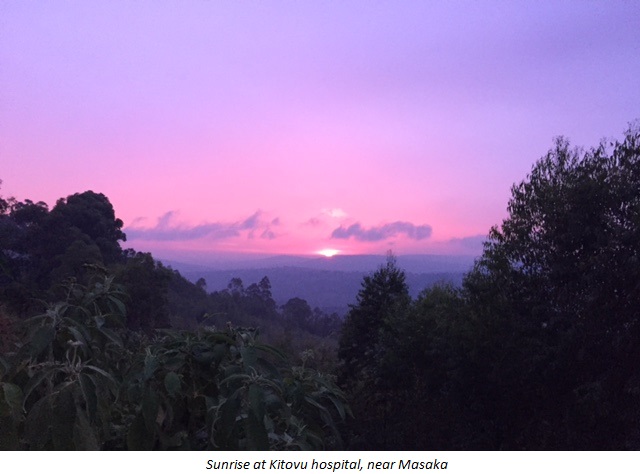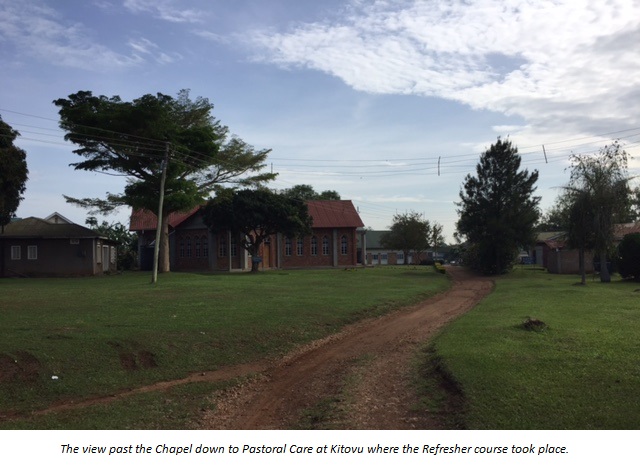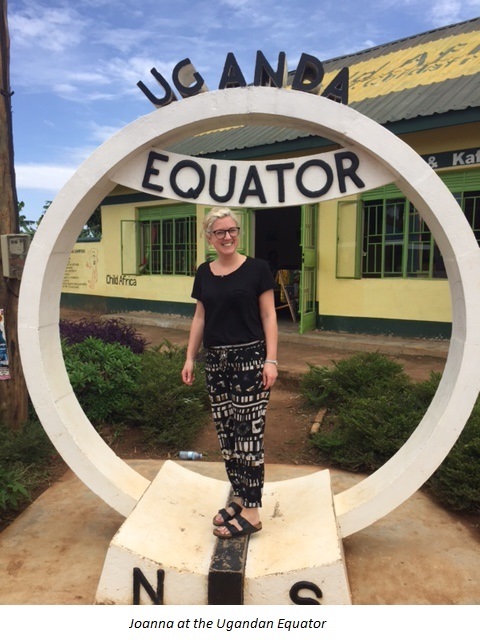Joanna Gibson, Clinical Leadership Fellow and a registrar in Obstetrics and Gynaecology, went to Uganda as a volunteer for a Royal College of Obstetricians and Gynaecologists (RCOG) obstetrics skills project and has written a blog on her experiences providing training in Uganda.
In October I went to Uganda to continue some work with the RCOG Excellence in: Obstetrics course. This was the second time I’ve been a volunteer with the project, which has trained a group of Ugandan maternity healthcare professionals known as the Master Trainers, to teach the 3/4 day Excellence emergency obstetric skills and train the trainers course. The Master Trainers are midwives, clinical officers and doctors from a variety of healthcentres and hospitals in the Masaka and Rakai districts.
Along with 3 colleagues from the UK, I provided some refresher training in obstetric skills and how to teach them to the Master Trainers at a renowned hospital called Kitovu, near to Masaka.

The hospital is famous for the Fistula Camps held there, which repair obstetric fistulae that occur as a result of obstructed labour. One of the main aims of the ‘Excellence’ course is to teach healthcare professionals to diagnose obstructed labour and refer those women to hospitals which are able to manage it, to avoid fistulae and other complications, but also to save the mother and baby’s lives. Initially the Master Trainers needed a little bit more support that we had initially envisaged. As some Master Trainers work in small units, they rarely see some of the obstetric emergencies that are taught on the course and therefore needed quite a lot of support to remember the skills but soon gained confidence in their abilities.
After the refresher training, one of my UK colleagues and I went to the capital city Kampala with the Master Trainers for the second part of the trip. Here the Master Trainers taught the Excellence course to a group of multidisciplinary healthcare professionals from Mengo Hospital. Mengo is the oldest hospital in Uganda which started as a mission hospital and is now a fairly large private not-for-profit urban community hospital. The Master Trainers did a great job at teaching the course at Mengo, with a fairly challenging audience, some of whom were not that keen on changing their practice to align with evidence-based medicine. I was particularly impressed to see the MTs working so well as a team. It was clear that they have developed good relationships over time and were genuinely supportive of each other. They came across as a real team who supported each other within a flat hierarchy independent of their usual role in the hospital.
One of the workshops that I helped to facilitate which stands out in my mind is the psychosocial aspects of obstetric fistula. The three midwife Master Trainers who facilitated this workshop discussed obstetric fistula in such a respectful and thoughtful manner. They talked about the psychosocial impacts of obstetric fistula in such a compassionate way. They emphasised the importance of treating women with respect and empathy. They described the reality of women with fistula being rejected from their communities and feeling like they were unable to contribute to normal life such as going to church as they were worried about other people’s reaction towards them. They shared their own experiences of seeing women with obstetric fistula which made the session very real. From my understanding, it’s quite unusual for teaching in Uganda to have an emphasis on respectful care and it was clear that it was quite thought-provoking for the delegates.
From a personal point of view, it was absolutely wonderful to see and spend time with the Master Trainers again. They really are a very special group of people who are inspirational in what they have achieved and what they hope to achieve. They have real passion for the course and see the benefit of it being such a hands-on course. I think the fact that they work so well together when they all have different job roles and are at different levels of authority and knowledge is incredible, especially in a country where hierarchy is king. I have also learned so much from them. I endeavour to see things from their point of view as I understand that they are the experts in how their healthcare system and environment works. The UK faculty and the MTs worked together as a team, learning and growing together with respect and warmth.
Kitovu is an incredible place and I feel lucky to have spent time there. Every morning, I would go for a run through the back gates of the hospital grounds. It was wonderful to see the sun rise into the sky, over the valleys. On a clear day I could see Lake Victoria. Sometimes there were farmers taking their herd of local cows out for grazing along the plateau on the tops of the hills. I loved this chance to have some quiet time before the busy day ahead, looking out over Uganda.

I am very grateful that I have been able to go back to Uganda for this second visit. I have gained so many skills and experiences, both professionally and personally. I have loved working with everyone on the project, and I’m really looking forward to working with them during the next part of the project which is focusing on sustainability.
